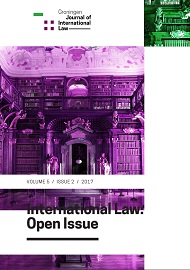The Protection of Socio-Economic Rights through the Canon of Civil and Political Rights: A Comparative Perspective
DOI:
https://doi.org/10.21827/5a6af9bd48d3aKeywords:
SOCIO-ECONOMIC RIGHTS, INDIRECT PROTECTION, ECHR, ICCPR, RIGHT TO LIFEAbstract
Socio-economic rights have been largely neglected in international human rights law. Misconceptions about the nature of these rights have resulted in their marginalisation and their relegation to second-class rights. Effective enforcement mechanisms in respect of socio-economic rights are still lacking in international human rights law. In the context of the ICESCR, an individual complaint mechanism for socio-economic rights was only introduced in 2009. In contrast, civil and political rights have long been recognised in international human rights law and have always been subjected to effective enforcement mechanisms, in particular, individual complaint mechanisms. The distinction between the two sets of rights - civil and political rights on the one hand, and socio-economic rights on the other hand - has begun to fade. The international human rights community has now recognised the interdependence, indivisibility and interrelatedness of all human rights. Supervisory organs tasked with the interpretation and enforcement of civil and political rights treaties, most notably the ECtHR and the HRC, have played a crucial role in this process. They have recognised in their jurisprudence the interrelatedness of both sets of rights and have allowed socio-economic interests to be enforced indirectly through the canon of traditional, civil and political rights. This article specifically considers the ECtHR’s and the HRC’s jurisprudence on the right to life which demonstrates the extent to which these organs have protected social and economic interests. By using a variety of techniques, which are examined in this article, both organs have permeated the right to life with significant socio-economic dimensions. The analysis of the jurisprudence of the ECtHR shows that the right to life applies to cases concerning health interests in the broad sense as well as environmental interests. For its part, the HRC has not only recognised health and environmental interests as coming within Article 6 of the ICCPR, but also subsistence interests. The article concludes that, despite the conceptual developments, it is difficult for victims of such violations to succeed before the ECtHR and the HRC. The high standards imposed make it difficult for victims to bring successful claims based on the right to life.
Published
Issue
Section
Open Access Creative Commons


